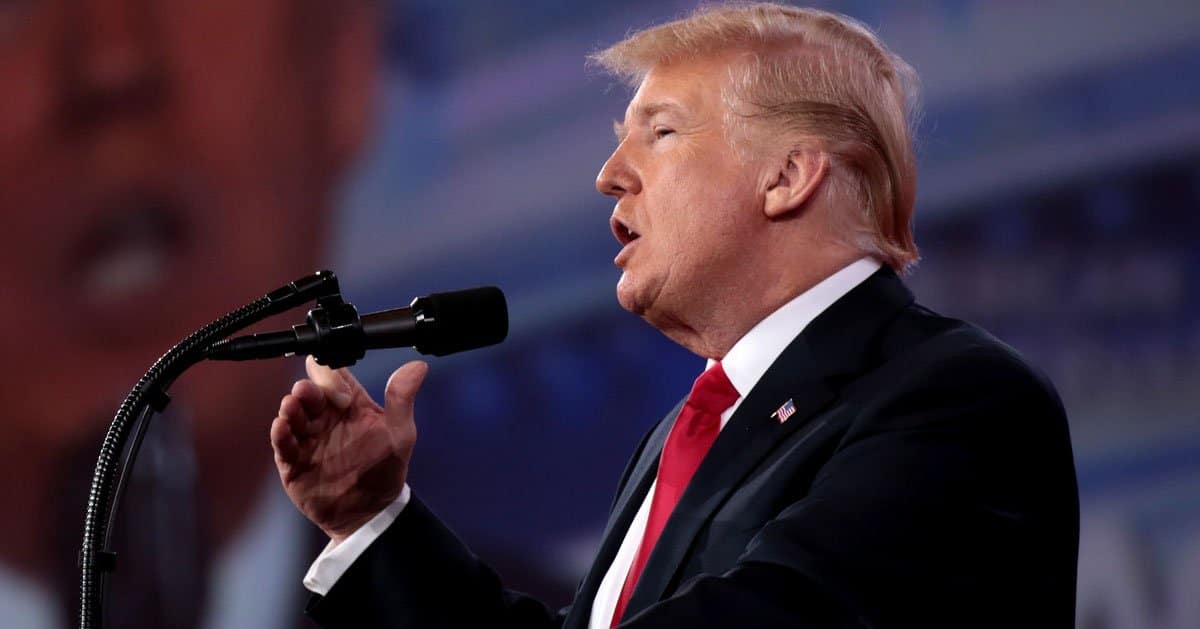






Former President Donald Trump is showing a significant lead in several crucial battleground states as the 2024 election approaches, according to recent internal polling data.
Just The News reported that the internal survey indicates that Trump is leading Vice President Kamala Harris across several key states, potentially positioning him to secure 312 electoral votes if these trends persist.
The polling data reveals that Trump is ahead in a range of pivotal states, including Georgia, Arizona, Nevada, Pennsylvania, Wisconsin, Michigan, and North Carolina.
These states are often seen as essential for any candidate hoping to win the presidency due to their sizeable electoral votes and historical unpredictability in elections.
In Georgia, Trump is currently leading Harris by five percentage points, showing a 50% to 45% advantage.
This state, traditionally a Republican stronghold, turned blue in the 2020 election, highlighting a potential shift in voter sentiment. Arizona sees a tighter race, with Trump holding a three-point lead at 49% compared to Harris's 46%.
Nevada is another state where Trump has secured a narrow lead. The poll illustrates Trump with 50% support against Harris's 47%. Pennsylvania, often considered a bellwether state, shows Trump barely ahead with 49% to Harris's 48%, signaling a highly competitive race.
Wisconsin adds to Trump's favorable positions, where he leads Harris 49% to 48%. The data also shows Trump ahead in Michigan by a similar margin of 49% to 47%. North Carolina rounds out the list, with Trump holding a modest lead of 48% to 47%.
The poll, conducted by Fabrizio/McLaughlin from October 6-9, 2024, surveyed 800 likely voters in each of the seven states, providing a comprehensive snapshot of current voter preferences. The results carry a margin of error of plus or minus 3.5%, which suggests the races remain quite competitive, although currently leaning in Trump's favor.
The memo accompanying the poll data, authored by Tony Fabrizio and John McLaughlin, highlighted the strategic significance of these findings.
They noted that the former President "holds an edge in all seven battlegrounds," including states that have traditionally formed the Democratic 'Blue Wall'.
The prospect of claiming 312 electoral votes if the polling trends hold is notable, as it would surpass Trump's total from the 2016 election, when he secured the presidency in a dramatic upset against Hillary Clinton.
This internal poll, while not definitive, underscores the potential electoral landscape for the upcoming election. Should Trump maintain or expand his lead in these swing states, it could alter the expected dynamics of the 2024 presidential race. This would provide the Republican party with a strategic advantage given these states' electoral significance.
The results come as the campaign season intensifies, with both parties ramping up efforts to consolidate their bases and sway undecided voters. Trump's apparent lead highlights the crucial role that battleground states will play in determining the outcome of the election.
However, the close margins in states like Pennsylvania, Wisconsin, and Michigan demonstrate that the electoral landscape is still far from predictable. The slim lead in these states suggests that shifts in campaign strategy, voter turnout, and unforeseen events could still influence the final outcome.
The Fabrizio/McLaughlin poll offers insight into voter preferences in these seven battleground states, reflecting current sentiments that may evolve as the election draws nearer. These states' mixed political backgrounds and changing demographics mean they are often targeted heavily in presidential campaigns.
The consistent focus on these battleground states underscores their importance in the broader electoral strategy, emphasizing how each candidate must tailor their messages to resonate with local concerns. Economic issues, health care, and climate change are likely key issues that could sway voters in these states.
As campaigns continue, both Trump and Harris will likely increase efforts to connect with voters in these critical regions. Addressing specific state concerns could sway undecided voters and cement supporters' loyalty, playing a pivotal role at the ballot box.

